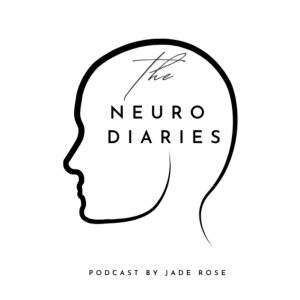
- Podcast Features
-
Monetization
-
Ads Marketplace
Join Ads Marketplace to earn through podcast sponsorships.
-
PodAds
Manage your ads with dynamic ad insertion capability.
-
Apple Podcasts Subscriptions Integration
Monetize with Apple Podcasts Subscriptions via Podbean.
-
Live Streaming
Earn rewards and recurring income from Fan Club membership.
-
Ads Marketplace
- Podbean App
-
Help and Support
-
Help Center
Get the answers and support you need.
-
Podbean Academy
Resources and guides to launch, grow, and monetize podcast.
-
Podbean Blog
Stay updated with the latest podcasting tips and trends.
-
What’s New
Check out our newest and recently released features!
-
Podcasting Smarter
Podcast interviews, best practices, and helpful tips.
-
Help Center
-
Popular Topics
-
How to Start a Podcast
The step-by-step guide to start your own podcast.
-
How to Start a Live Podcast
Create the best live podcast and engage your audience.
-
How to Monetize a Podcast
Tips on making the decision to monetize your podcast.
-
How to Promote Your Podcast
The best ways to get more eyes and ears on your podcast.
-
Podcast Advertising 101
Everything you need to know about podcast advertising.
-
Mobile Podcast Recording Guide
The ultimate guide to recording a podcast on your phone.
-
How to Use Group Recording
Steps to set up and use group recording in the Podbean app.
-
How to Start a Podcast
-
Podcasting
- Podcast Features
-
Monetization
-
Ads Marketplace
Join Ads Marketplace to earn through podcast sponsorships.
-
PodAds
Manage your ads with dynamic ad insertion capability.
-
Apple Podcasts Subscriptions Integration
Monetize with Apple Podcasts Subscriptions via Podbean.
-
Live Streaming
Earn rewards and recurring income from Fan Club membership.
-
Ads Marketplace
- Podbean App
- Advertisers
- Enterprise
- Pricing
-
Resources
-
Help and Support
-
Help Center
Get the answers and support you need.
-
Podbean Academy
Resources and guides to launch, grow, and monetize podcast.
-
Podbean Blog
Stay updated with the latest podcasting tips and trends.
-
What’s New
Check out our newest and recently released features!
-
Podcasting Smarter
Podcast interviews, best practices, and helpful tips.
-
Help Center
-
Popular Topics
-
How to Start a Podcast
The step-by-step guide to start your own podcast.
-
How to Start a Live Podcast
Create the best live podcast and engage your audience.
-
How to Monetize a Podcast
Tips on making the decision to monetize your podcast.
-
How to Promote Your Podcast
The best ways to get more eyes and ears on your podcast.
-
Podcast Advertising 101
Everything you need to know about podcast advertising.
-
Mobile Podcast Recording Guide
The ultimate guide to recording a podcast on your phone.
-
How to Use Group Recording
Steps to set up and use group recording in the Podbean app.
-
How to Start a Podcast
-
Help and Support
- Discover

- Stimming is a common way for neurodivergent individuals to regulate and soothe themselves.
- An autism diagnosis can provide a sense of self-compassion and allow for accommodations that bring joy and ease of stress.
- Balancing routine and novelty-seeking can be challenging for individuals with ADHD and autism.
- Sensory sensitivities are a common experience for autistic individuals, and finding ways to manage them is important.
- Alcohol can be used as a coping mechanism for sensory overload, but finding healthier alternatives is crucial.
- Greater understanding and acceptance of neurodivergent individuals is needed in society. Living with neurodivergence often involves masking and adapting to fit into a neurotypical world.
- Bullying and invalidation can have a profound impact on the self-perception and self-acceptance of neurodivergent individuals.
- Greater education and understanding are needed to create a more inclusive and accommodating society for neurodivergent individuals.
- The journey of self-acceptance and unmasking is not linear and may involve setbacks, but it is essential for personal growth and well-being.
- There is hope for a future where neurodivergence is accepted and accommodated without stigma.
Keywords
neurodivergence, autism, ADHD, stimming, regulation, sensory sensitivity, alcohol, coping mechanism, acceptance, neurodivergence, autism, bullying, self-acceptance, understanding, accommodations, masking, anger, hope
More Episodes
 2025-02-20
2025-02-20
 82
82
 2024-12-09
2024-12-09
 85
85
 2024-11-11
2024-11-11
 56
56
 2024-10-09
2024-10-09
 39
39
 2024-10-02
2024-10-02
 175
175
 2024-09-25
2024-09-25
 42
42
 2024-09-18
2024-09-18
 65
65
 2024-09-10
2024-09-10
 53
53
 2024-09-04
2024-09-04
 58
58
 2024-08-21
2024-08-21
 89
89
 2024-08-14
2024-08-14
 76
76
 2024-08-06
2024-08-06
 162
162
Create your
podcast in
minutes
- Full-featured podcast site
- Unlimited storage and bandwidth
- Comprehensive podcast stats
- Distribute to Apple Podcasts, Spotify, and more
- Make money with your podcast
It is Free
- Privacy Policy
- Cookie Policy
- Terms of Use
- Consent Preferences
- Copyright © 2015-2025 Podbean.com



